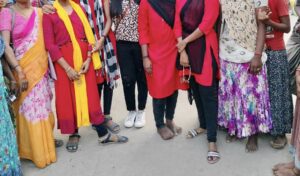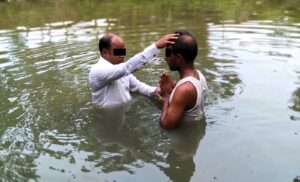We had entered another world – a small Bangladeshi village surrounded like an island by a sea of flooded rice paddies.
Nine years ago, Santali tribal people migrated here, determined to build a better life. Although they earn less than a dollar a day working in the fields, they have built a good life. They divided the “island” into lots, built mud houses, planted gardens, acquired livestock, and even built a church for their 170 members!
By international standards, this community is extremely poor; yet when I visited last month, it reminded my companions and me of the Garden of Eden because of the great natural beauty, the proximity of the people to the land and animals, and the subtropical climate.
I felt happy for the people there and admired what they had accomplished with so little.
We were welcomed in the village with songs and dances to the beat of drums, then the village gathered in church to present its only request: could Harvest Bridge help give their children a basic education?
The parents knew that if their children reached adulthood without learning the national language, Bengali, and receiving at least a primary school education, they would have no job prospects except insecure day labor at unlivable wages. Though uneducated themselves, the adults realize that the world is changing and that their children will need an education to flourish.
They are right: farm machinery will increasingly displace unskilled labor. It broke my heart to think of what might become of these children as they approach adulthood.
Would they, like so many youth in developing countries, migrate to big cities looking for work?
How would teenagers raised in this idyllic rural village fare in the polluted slums of Dhaka, one of the most congested places in the world?
What work, if any, could they find without a primary-level education or even a knowledge of the language?
Other villages have also asked us to help educate their children.
There is no one-size-fits all solution. Sometimes there is a public school nearby, which the children could attend if they are first taught Bengali. For other villages, the parents need help advancing economically so they can afford the school fees. In some cases, we might be able to find another NGO to serve the community.
The people of these villages are industrious and deserving, and the need is real, but what should Harvest Bridge’s role be?
Although it might appear that Harvest Bridge does many things, we actually do only one: we equip local Christian ministries to do more than they could otherwise. Our impact is diverse because our local partners and their ministries are diverse.
Our ability to help these children depends on having the right local leaders and the needed resources. In the case of the village among the rice paddies, we already have the leadership we need. Our ability to help depends on having the needed funds.
Thank you for supporting Harvest Bridge as we reach remote places with Christ’s love!
If you are able to help these villages educate their children, please make a special donation, or by check to our Bangladesh Education Fund.
We will help our local partners leverage your support to provide a better future for these kids.
Thank you!
In Christ,
Timothy M., President







